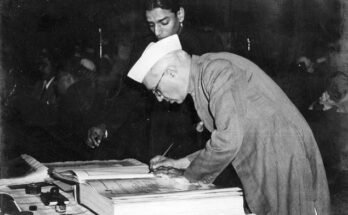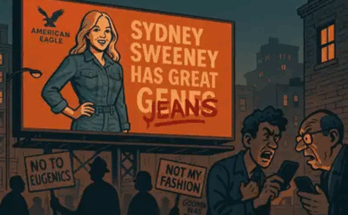India has a pioneer spirit in inventing afresh in any field. So is the case with political economy. NYAY is one of such schemes offered by India through the Indian National Congress in the 2019 election campaign where every household would have gotten a minimum income. The scheme failed miserably as the voters in India didn’t subscribe to such an idea. The Congress Party, despite offering this to the public for the first time any political party so offered in the world, lost the fray.
Similar was the case with the US elections in 2020 wherein during the presidential campaign Democratic candidate Andrew Yang made the idea a cornerstone of his campaign. He argued that $1000 a month would be given to every American having age over 18 years. This enticed the kindness of the world’s economists. A new argument began. Everyone became campaigners for universal basic income. The world media towards India after Modi is so inconsiderate that they didn’t cover the subject of NYAY in 2019. Had it been covered at that point in time, empirical evidence to support the idea would have come for the economists. The world would have witnessed whether universal basic income could make a new world order.
The State of Inequality in India Report was released by Dr Bibek Debroy, Chairman, Economic Advisory Council to the Prime Minister (EAC-PM) wherein it is argued inter alia that measure to curb inequality is “establishing universal basic income” i.e. NYAY. Thank God! It is not too late to go back to the drawing board and assess the mistakes.
While describing Ayodhya in Valmiki Ramayan, the sage understands Utopia in following words, “In that city none is there without his earrings, headgear, or garlands, none is an enjoyer of lowly things, or misses his regular oil-baths, or with an un-creamed body with sandalwood paste or with other body cream, or with an un-perfumed physique.” [1-6-10]
In his book Utopia, Thomas More writes in favour of Universal Basic Income: “…for, as the severity was too great, so the remedy was not effectual; simple theft not being so great a crime that it ought to cost a man his life; no punishment, how severe so ever, being able to restrain those from robbing who can find out no other way of livelihood.” He was of the considerate view that the concept of Utopia could not be fulfilled unless everyone gets a means to livelihood. He gave an idea that no one should die of hunger. He postulated that income must flow to every person, king or thief.
In the book, Where Do We Go from Here: Chaos or Community?, Martin Luther King, Jr. wore his heart on his sleeve and prescribed emphatically in support of universal basic income and recommended:
In addition to the absence of coordination and sufficiency, the programs of the past all have another common failing- they are indirect. Each seeks to solve poverty by first solving something else. I am now convinced that the simplest approach will prove to be the most effective- the solution to poverty is to abolish it directly by a now widely discussed measure: the guaranteed income.
Martin Luther King, Jr.
He argued that the guaranteed income would benefit all poor.
The writer of these lines is also an aficionado of Universal Basic Income but not for all at first instance as he feels that this idea would reduce the incentive for work. The idea must be applied to the citizens of BPL, senior citizens, widows, and people with severe disabilities first. Now comes another question in mind: what should be the amount of income that should have been given? Answer is given by Martin Luther King, Jr. himself, when he says, “Two conditions are indispensable if we are to ensure that the guaranteed income operates as a consistently progressive measure.”
He continues: “First, it must be pegged to the median income of society, not at the lowest levels of income. To guarantee an income at the floor would simply perpetuate welfare standards and freeze into the society poverty conditions. Second, the guaranteed income must be dynamic; it must automatically increase as the total social income grows. Were it permitted to remain static under growth conditions, the recipients would suffer a relative decline. If periodic reviews disclose that the whole national income has risen, then the guaranteed income would have to be adjusted upward by the same percentage. Without these safeguards a creeping retrogression would occur, nullifying the gains of security and stability.”
It is also imperative to know the source of funds so that guaranteed income could be provided. One argument was postulated by the American philosopher, Thomas Paine in his pamphlet, Agrarian Justice wherein he argues:
But the earth in its natural state, as before said, is capable of supporting but a small number of inhabitants compared with what it is capable of doing in a cultivated state. And as it is impossible to separate the improvement made by cultivation from the earth itself, upon which that improvement is made, the idea of landed property arose from that inseparable connection; but it is nevertheless true, that it is the value of the improvement only, and not the earth itself, that is individual property. Every proprietor, therefore, of cultivated land, owes to the community a ground-rent (for I know of no better term to express the idea) for the land which he holds; and it is from this ground-rent that the fund proposed in this plan is to issue. … In advocating the case of the persons thus dispossessed, it is a right, and not a charity, that I am pleading for. But it is that kind of right which, being neglected at first, could not be brought forward afterwards till heaven had opened the way by a revolution in the system of government. Let us then do honour to revolutions by justice, and give currency to their principles by blessings. Having thus in a few words, opened the merits of the case, I shall now proceed to the plan I have to propose, which is, To create a National Fund, out of which there shall be paid to every person, when arrived at the age of twenty-one years, the sum of fifteen pounds sterling, as a compensation in part, for the loss of his or her natural inheritance, by the introduction of the system of landed property: And also, the sum of ten pounds per annum, during life, to every person now living, of the age of fifty years, and to all others as they shall arrive at that age.”
Agrarian Justice, Thomas Paine
There is also a modern school of thought which advocates in a similar fashion by proposing a super-rich tax. The thought would be welcomed by the poor and socialist intellectuals but not buy the writer of these lines. By the poor because of sadistic pleasure, by socialist intellectuals because of their attitude of feeling under the weather when it comes about the rich by not the writer of these lines because imposing super rich tax would be injustice to the rich and there cannot be justice with the help of injustice. Rich earn wealth by burning their midnight oil. Earrings are the indicators of scholarship, and there are grades in their make and design, on par with the education one receives.
When people become prisoners of political agenda!
Supporting the idea of Kaushik Basu handled in his book, “An Economist in the Real World: The art of policymaking in India”, which thus reads, “When I moved to policy making in government, it was a conscious decision to abandon hedonism and try to make some direct and palpable contribution to society’s economic well-being.”, I would go along with John Kenneth Galbraith when he says, in The Progressive, the burden of guaranteed income would not be much as “not much more than we will spend the next fiscal year to rescue freedom and democracy and religious liberty as these are defined by ‘experts’ in Vietnam.”
In a nutshell, I would argue that guaranteed schemes like NYAY should be implemented with median income as recommended by Martin Luther King, Jr. and funded through the fiscal policy but not imposing super-rich tax. Modi Government, being expert, must stop biting off more than it can chew, and, therefore, implement social reforms one by one and guaranteed income should not go cold turkey and employment schemes like MGNREGA must notch up the victory.
Writer is a Kolkata based professional specialising in finance and governance.




